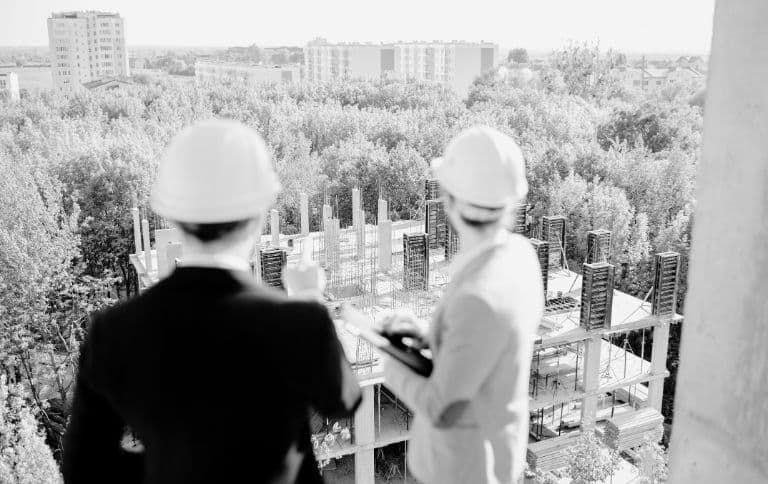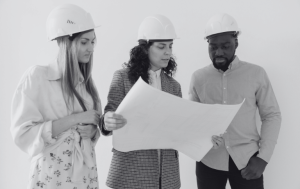Construction projects in Atlanta, whether large or small, involve numerous moving parts, stakeholders, and legal obligations. When disputes arise, they can disrupt progress, cause financial strain, and lead to complex legal battles. Understanding the construction litigation process in Atlanta can help business owners, contractors, developers, and property owners prepare for and navigate potential conflicts more effectively.
What is Construction Litigation?
Construction litigation refers to legal disputes related to construction projects. These disputes can arise between various parties, including property owners, general contractors, subcontractors, architects, engineers, and suppliers. Common issues leading to litigation include contract breaches, delays, construction defects, non-payment, and warranty claims.
Given the complexities involved in most construction projects, litigation can be a lengthy and complicated process. Working with a construction litigation attorney who understands both the legal landscape and the construction industry is essential for successfully managing these disputes.
Common Types of Construction Disputes
Construction litigation can involve a wide range of disputes, but some of the most common issues include:
- Contract Disputes: Disagreements over contract terms, scope of work, change orders, and project timelines can lead to litigation. These disputes often arise when one party believes the other has failed to meet its contractual obligations.
- Construction Defects: Claims of faulty workmanship, design flaws, or substandard materials can lead to legal action. Construction defect cases often require expert testimony to determine whether the work was performed according to industry standards and local building codes.
- Payment Disputes: Non-payment or underpayment for work performed is a frequent cause of litigation in the construction industry. This can include disputes over unpaid invoices, retainage, or mechanics’ liens filed by contractors or suppliers.
- Delay Claims: Project delays can result in significant financial losses. If one party causes a delay, the other may seek compensation for additional costs incurred as a result.
- Breach of Warranty: Many construction projects come with warranties, either express or implied. Breach of these warranties, such as failures to fix defects or provide agreed-upon services, can lead to legal action.
The Construction Litigation Process in Atlanta
While each construction dispute is unique, the litigation process in Atlanta generally follows these steps:
Pre-Litigation and Demand Letters
Before formal litigation begins, parties often attempt to resolve disputes through negotiation. In many cases, one party will send a demand letter outlining the issue and requesting resolution. Demand letters can sometimes prompt a settlement without the need for litigation. This step is crucial as it can lay the groundwork for negotiations or future legal action.
Filing the Complaint
If the dispute cannot be resolved through negotiation, the next step is filing a formal lawsuit. The plaintiff (the party bringing the lawsuit) will file a complaint with the appropriate court, outlining the claims and damages sought. In Georgia, construction litigation is typically handled in state courts, but federal courts may become involved in certain cases, such as when parties are from different states.
Discovery Process
Once the lawsuit is filed, both parties enter the discovery phase. During discovery, each side gathers evidence to support their case. This can include document requests, depositions (sworn testimony), and interrogatories (written questions). In construction litigation, discovery often involves reviewing contracts, blueprints, project timelines, and expert reports on construction standards and defects.
Mediation and Settlement Discussions
Many construction disputes are resolved before they reach trial through alternative dispute resolution (ADR) methods, such as mediation or arbitration. In mediation, a neutral third party helps the disputing parties negotiate a settlement. Arbitration, on the other hand, is a more formal process where an arbitrator hears evidence and makes a binding decision. Both methods are typically faster and less expensive than going to trial.
Trial
If the parties are unable to reach a settlement, the case may go to trial. During the trial, both sides present their evidence, call witnesses, and make arguments before a judge or jury. Construction litigation trials can be complex, involving expert testimony and detailed analysis of technical construction issues. After hearing the evidence, the court will issue a judgment.
Appeals
In some cases, the losing party may appeal the court’s decision to a higher court. Appeals can add time and cost to the litigation process, but they offer an opportunity to challenge legal errors made during the trial.
The Importance of Documentation in Construction Litigation
In construction disputes, documentation is key. Maintaining thorough and accurate records throughout the construction process can make or break your case. Important documents include:
- Contracts and Change Orders: These establish the scope of work and terms of the agreement between the parties.
- Project Plans and Specifications: These provide details about the project design and construction requirements.
- Communications: Emails, letters, and meeting notes can provide crucial evidence in a dispute.
- Invoices and Payment Records: Proof of payments made or outstanding amounts owed is essential in payment disputes.
- Inspection and Compliance Reports: These can demonstrate whether the work was performed according to building codes and industry standards.
Why You Need a Construction Litigation Attorney
Construction litigation is complex, involving multiple parties, technical issues, and extensive documentation. Without proper legal representation, navigating this process can be overwhelming and costly. An experienced construction litigation attorney will:
- Assess Your Case: They will evaluate the strengths and weaknesses of your case and advise you on the best course of action.
- Handle Dispute Resolution: Whether through negotiation, mediation, arbitration, or litigation, your attorney will represent your interests and seek the best possible outcome.
- Ensure Compliance with Laws: Construction projects are governed by numerous federal, state, and local laws. Your attorney will ensure that your case is handled in accordance with these regulations.
- Protect Your Rights: Whether you’re a property owner, contractor, or developer, your attorney will protect your rights and help you recover the compensation you deserve.
Conclusion
Construction litigation can be a daunting process, but understanding the steps involved and having the right legal representation can make all the difference. Whether you’re facing a contract dispute, construction defect, or payment issue, working with an experienced construction litigation attorney in Atlanta is essential to protecting your interests and achieving a favorable outcome.
If you need assistance with a construction-related dispute, contact our law firm today. Our team has extensive experience in construction litigation and is ready to help you navigate the process with confidence.




